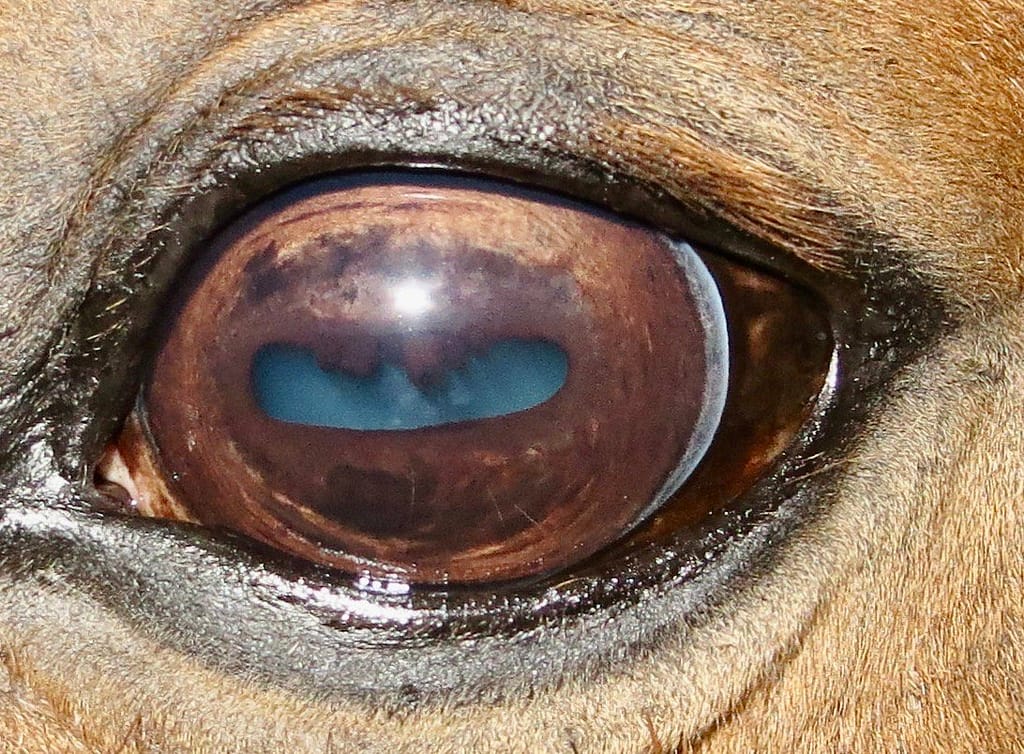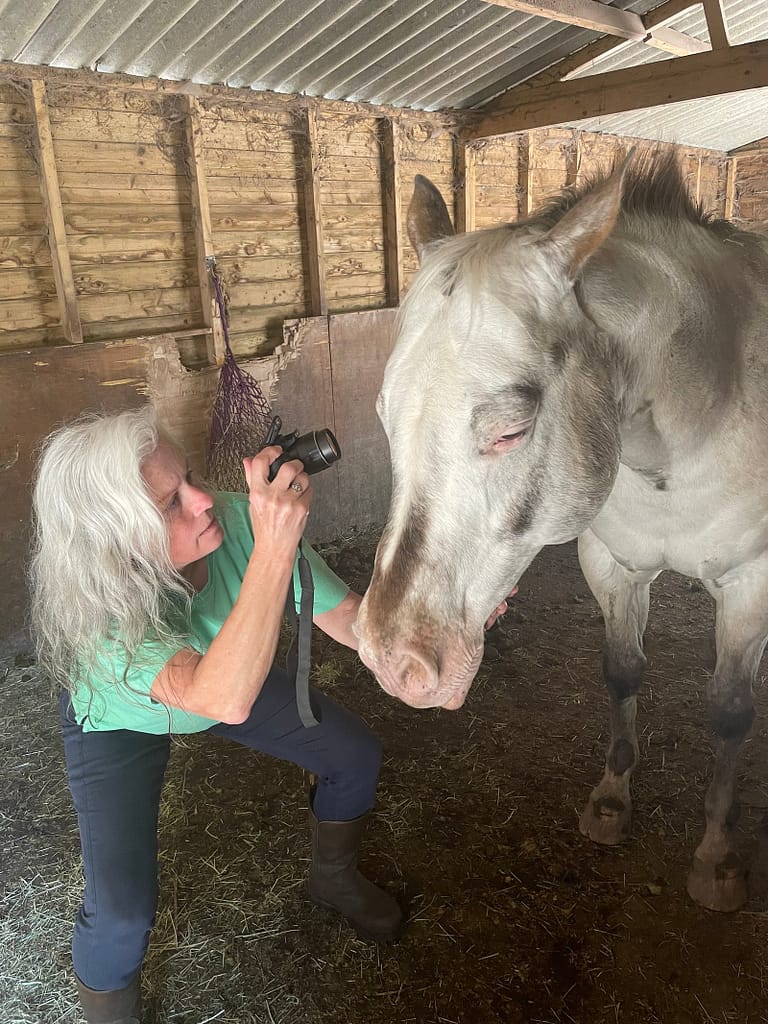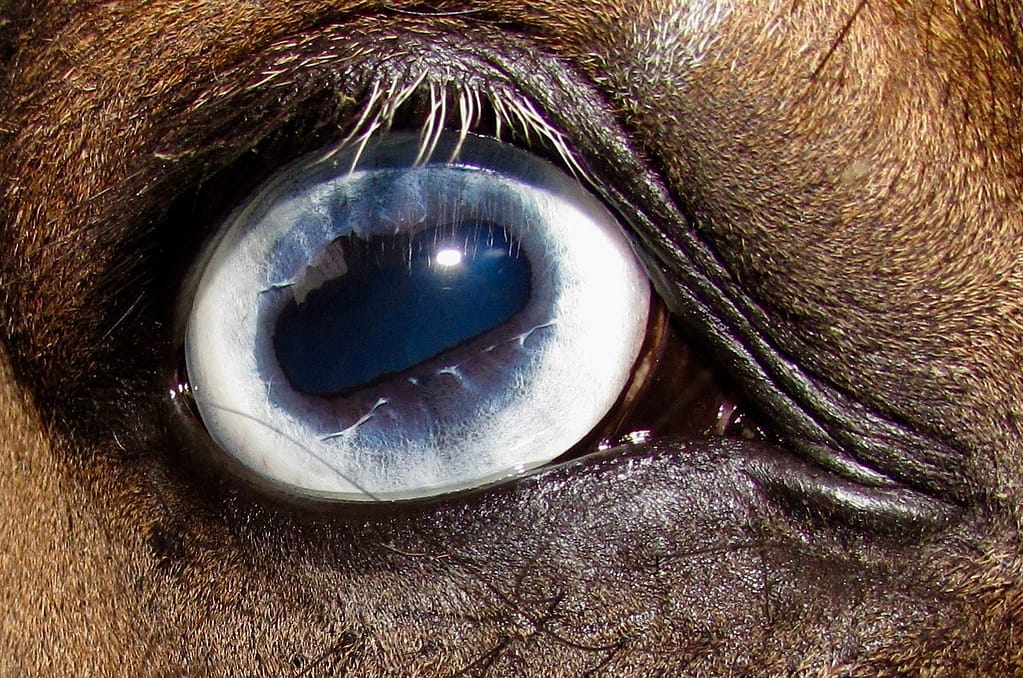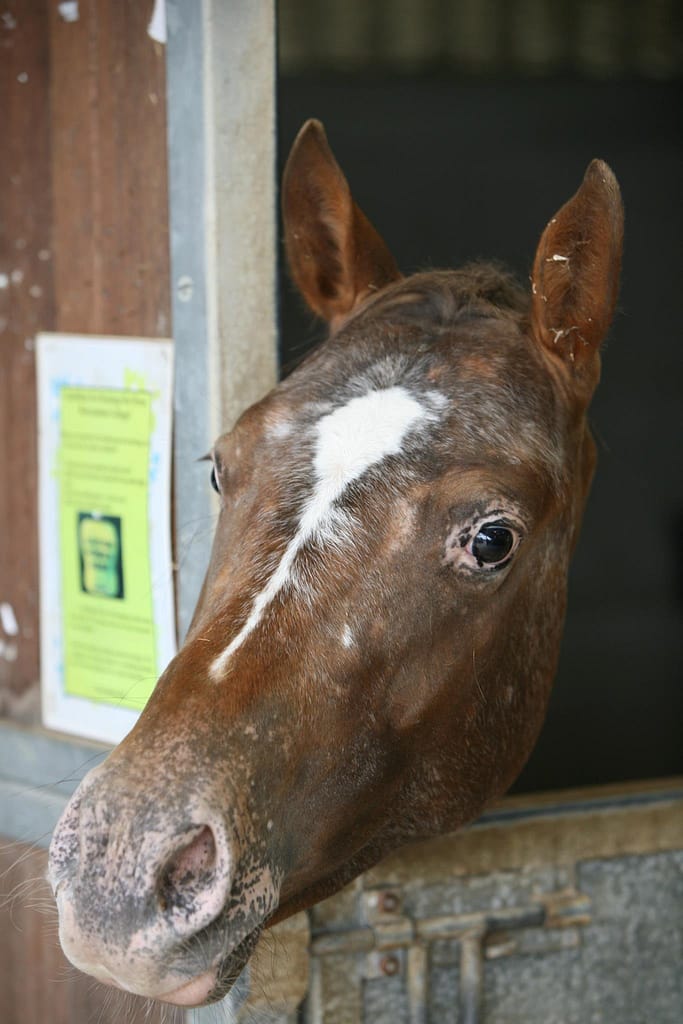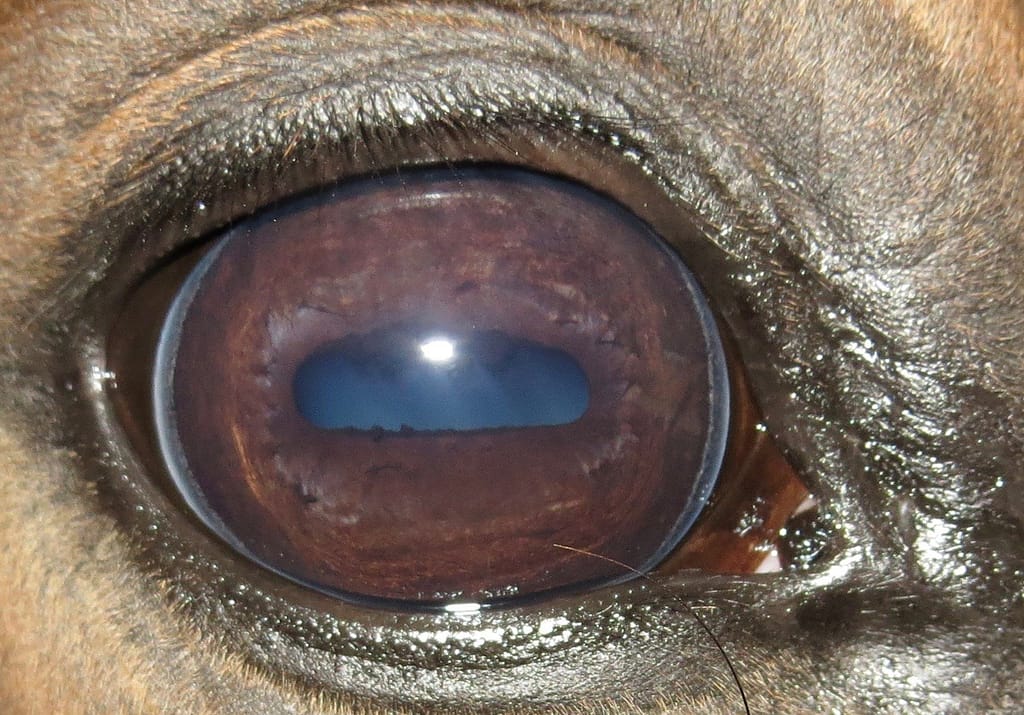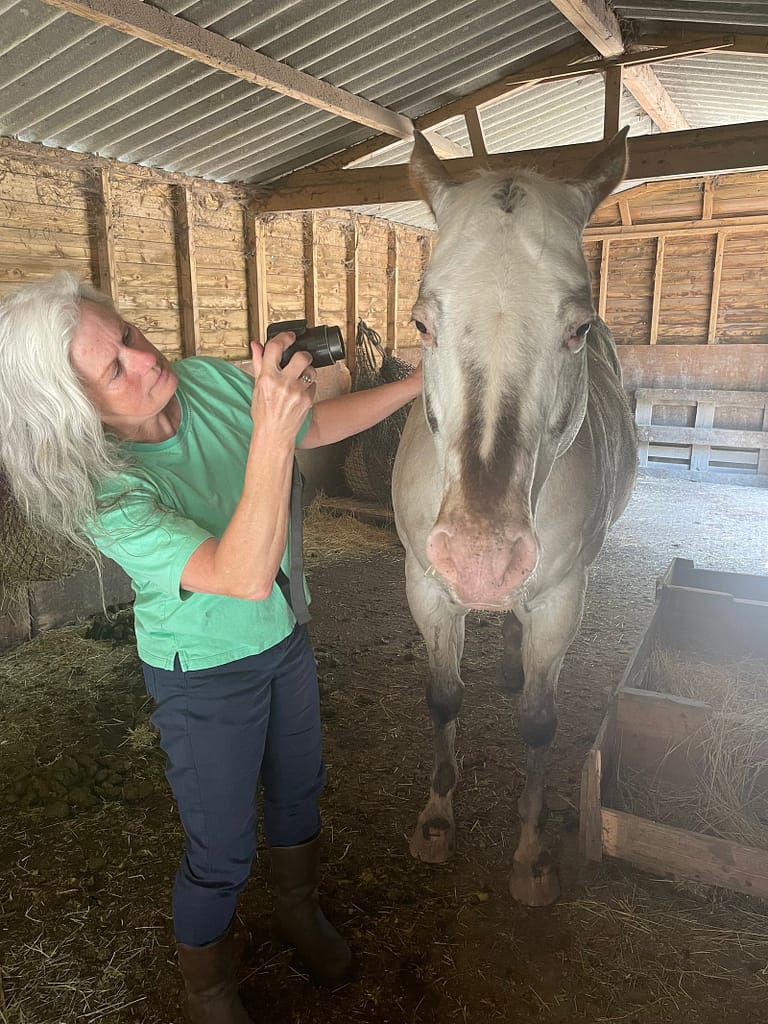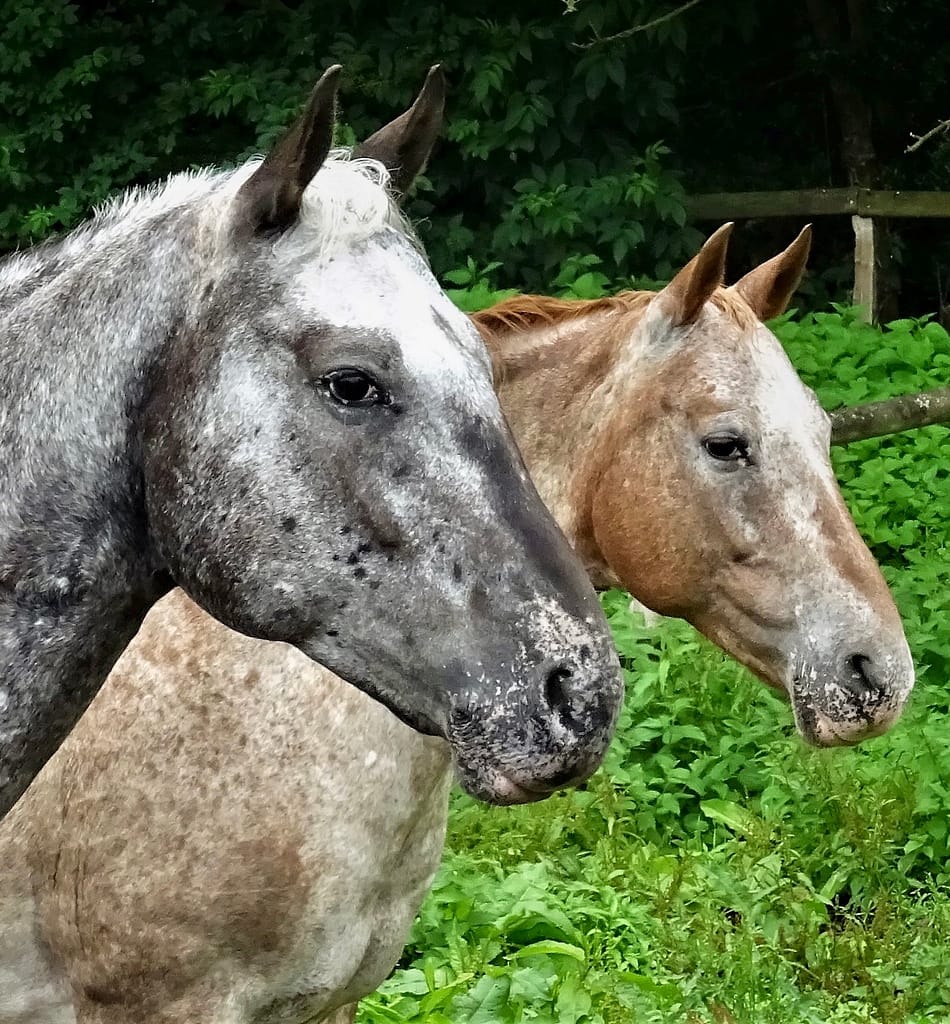About
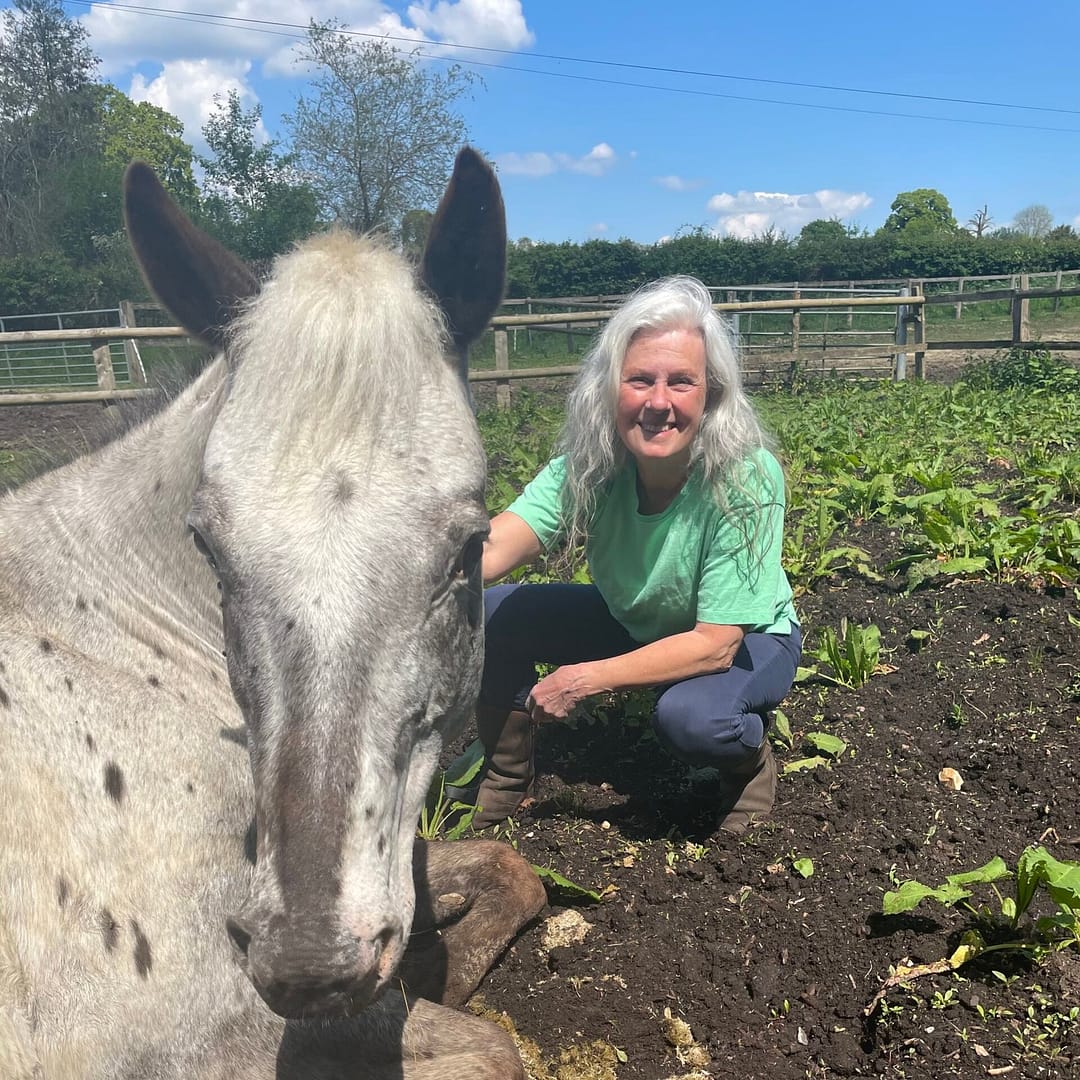
About Me
My lifelong passion for horses started at age 5 on a Welsh Mountain pony. Like many others I did Pony Club and worked with horses, since adulthood I’ve immersed myself in various equestrian disciplines, culminating in much more natural and holistic horse-care. Currently, I cherish my Appaloosas and serve as Registrar/Director at The Appaloosa Horse Club UK.
I discovered Equine Iridology about 18 years ago and it was a true lightbulb moment for me, but I had to wait for a suitable course until 2017 when I started training with Catherine Edwards Academy, learning not only the fascinating subject of Iridology but also about herbs, self-selection and healthy horse management and qualified as a Holistic Equine iridologist in 2020.
I am a member of the Guild of Naturopathic Iridologists and am part of a small group of International Equine Iridologists that meet regularly on Zoom and WhatsApp to share knowledge, research and support each other. I am furthering my herbal knowledge via Animal Botanicals seasonal course ‘Herbal Shenanigans’. Beyond horses, I’m a Pilates teacher and Sports Therapist, leveraging my understanding of biomechanics and physiology.
Still driven by a deep love for horses and a belief in holistic well-being, I love enabling people to achieve health for their equines …and then their goals.
What is Iridology?
Iridology is a non-invasive technique using a torch, a magnifying glass and a camera to look into your horses irides. Most horses don’t mind this at all and it is helpful if I can see them in a stable or a field shelter to limit the light into the eye. I will be able to see marks in the irides which gives a lot of information on the current and past state of organs and body tissues. Iridology can show genetic strengths and weaknesses, behavioural and physical traits. Levels of inflammation, toxicity, acidity and the status of systems and organs giving an overview of the health of the body. It will also show spinal and neuromuscular injury or tension and underlying pathways to a condition.
Iridology cannot give a medical diagnosis or diagnosis of a named disease or confirm specific diseases, cause of injury or anything done under anaesthetic (this is because anaesthetic interferes with neural pathways to the brain). Iridology can’t tell gender or pregnancy, life expectancy, tumours, leukaemia, gall stones or kidney stones and rare genetic conditions, bacterial or fungal infections or parasites (yet) some of this is because it is classed as normal by the body as in a mutant cell, some of this is lack of research.
After the consultation I may recommend certain adjustments in your horses management and supportive herbs, oils or remedies. If the problem is structural I will recommend a body work that will help.

